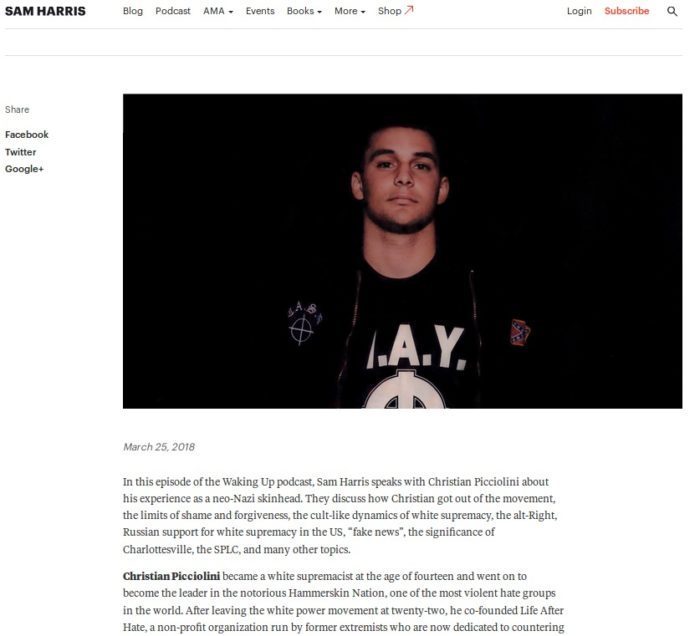People seem unable to understand groups they disagree with these days.
If you disagree with someone enough to argue with them, you probably want to influence them to stop acting in ways you disagree with—that is, you want to lead them.
To lead someone you don’t have authority over, you have to understand them and, ideally, make them feel understood. If you behave and communicate in ways that people feel misunderstood, you can say goodbye to influencing them because you led them to keep their defenses up.
What works against you
To pick one dimension of polarization, in politics, Hilary Clinton and her supporters showed no attempt to make people they disagreed with feel understood. If you want more votes, one of the main ways is to get people who disagree with you to change. Insulting them, no matter how right you think you are, wrong you think they are, and powerful you think you are, will generally polarize them against you. That result is the opposite of leadership.
Clinton calling Trump supporters “Deplorables” is one example of many in every raft of life, not just politics.. She destroyed her ability to influence Trump voters to vote for her.
As I observed, her supporters did the same. Trump and his supporters did the same.
What works
If you want to lead people, I recommend learning from the example of former neo-Nazi, Christian Picciolini, whom Sam Harris interviewed about his return to regular life.
After listening to Picciolini’s entrance into that world in the first couple minutes, note in the third minute what leads to his change:
- Empathy from others
- Compassion from others
- Listening to others
- Feeling understood
Schools rarely teach these skills. They may teach about the skills, but that’s like teaching about lifting weights. Only practice works (which my book teaches).
Listen to these highlights:
[archiveorg SamHarrisChristianPiccioliniHighlights width=640 height=30 frameborder=0 webkitallowfullscreen=true mozallowfullscreen=true]
Remarkable, isn’t it?
People describe themselves as patient, understanding, and tolerant, but in my experience they say such things when no one is challenging them. When someone they disagree with challenges them, they get angry, impatient, unwilling to understand, and intolerant.
It’s hard to empathize with someone you disagree with. On the other hand, it works, so I recommend developing skills like the people’s who led Picciolini. They led an angry, violent, powerful man to change his views and behavior.
Don’t you wish you could lead people to change so much? You could help save people’s lives.
How many people who violently disagree with have you led to about-face on their key issues? If zero, I recommend developing the skills of empathy, compassion, self-awareness, making people feel understood, and other aspects of leadership.
I posted the relevant highlights of the Harris-Picciolini conversation. The full episode is on Sam Harris’s podcast page.
Here are the show notes, including Picciolin’s background:
In this episode of the Waking Up podcast, Sam Harris speaks with Christian Picciolini about his experience as a neo-Nazi skinhead. They discuss how Christian got out of the movement, the limits of shame and forgiveness, the cult-like dynamics of white supremacy, the alt-Right, Russian support for white supremacy in the US, “fake newsâ€, the significance of Charlottesville, the SPLC, and many other topics.
Christian Picciolini became a white supremacist at the age of fourteen and went on to become the leader in the notorious Hammerskin Nation, one of the most violent hate groups in the world. After leaving the white power movement at twenty-two, he co-founded Life After Hate, a non-profit organization run by former extremists who are now dedicated to countering racism. He is a TEDx speaker and won an Emmy in 2016 for his role as director and executive producer of an anti-hate video campaign. He’s the author of White American Youth: My Descent in America’s Most Violent Hate Movement—And How I Got Out.

